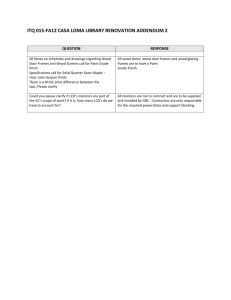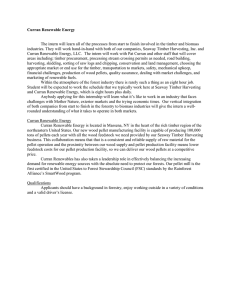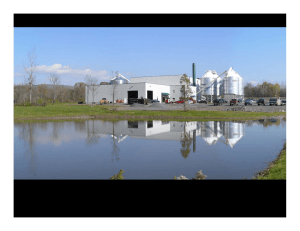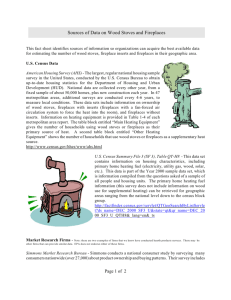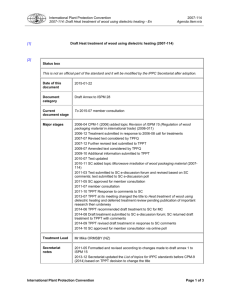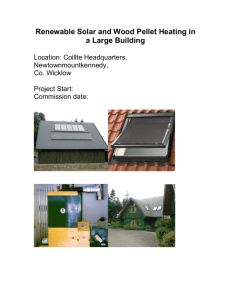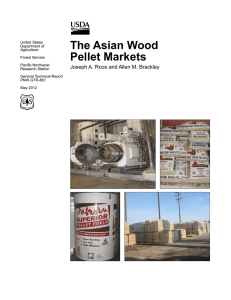Transforming Wood Heat Press Release
advertisement
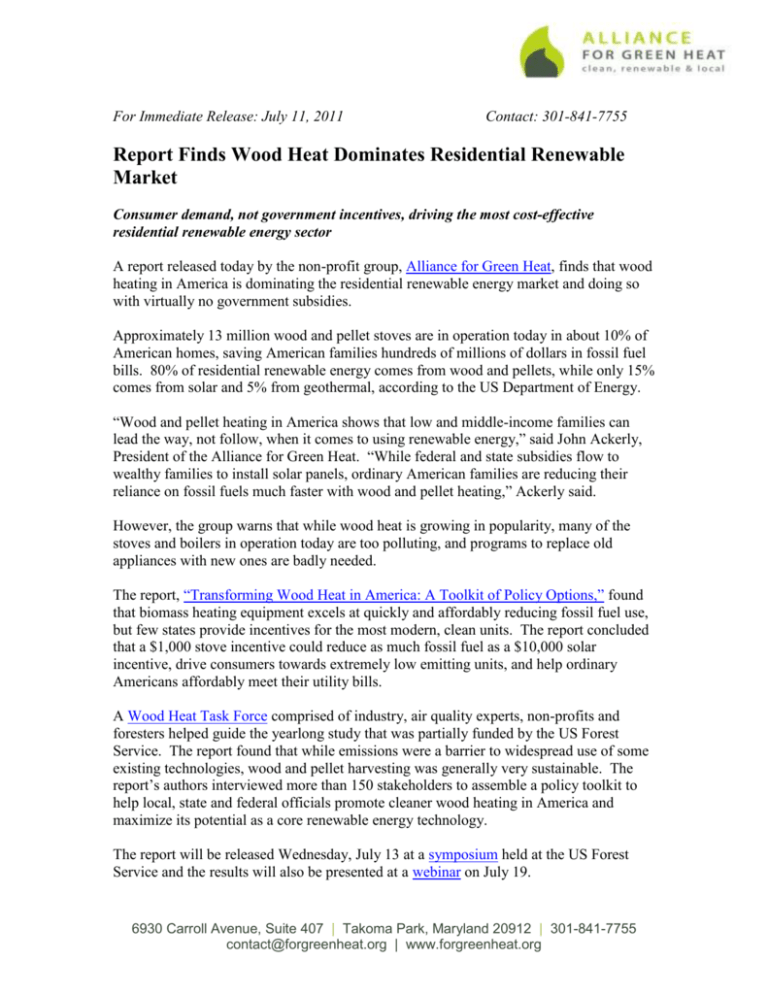
For Immediate Release: July 11, 2011 Contact: 301-841-7755 Report Finds Wood Heat Dominates Residential Renewable Market Consumer demand, not government incentives, driving the most cost-effective residential renewable energy sector A report released today by the non-profit group, Alliance for Green Heat, finds that wood heating in America is dominating the residential renewable energy market and doing so with virtually no government subsidies. Approximately 13 million wood and pellet stoves are in operation today in about 10% of American homes, saving American families hundreds of millions of dollars in fossil fuel bills. 80% of residential renewable energy comes from wood and pellets, while only 15% comes from solar and 5% from geothermal, according to the US Department of Energy. “Wood and pellet heating in America shows that low and middle-income families can lead the way, not follow, when it comes to using renewable energy,” said John Ackerly, President of the Alliance for Green Heat. “While federal and state subsidies flow to wealthy families to install solar panels, ordinary American families are reducing their reliance on fossil fuels much faster with wood and pellet heating,” Ackerly said. However, the group warns that while wood heat is growing in popularity, many of the stoves and boilers in operation today are too polluting, and programs to replace old appliances with new ones are badly needed. The report, “Transforming Wood Heat in America: A Toolkit of Policy Options,” found that biomass heating equipment excels at quickly and affordably reducing fossil fuel use, but few states provide incentives for the most modern, clean units. The report concluded that a $1,000 stove incentive could reduce as much fossil fuel as a $10,000 solar incentive, drive consumers towards extremely low emitting units, and help ordinary Americans affordably meet their utility bills. A Wood Heat Task Force comprised of industry, air quality experts, non-profits and foresters helped guide the yearlong study that was partially funded by the US Forest Service. The report found that while emissions were a barrier to widespread use of some existing technologies, wood and pellet harvesting was generally very sustainable. The report’s authors interviewed more than 150 stakeholders to assemble a policy toolkit to help local, state and federal officials promote cleaner wood heating in America and maximize its potential as a core renewable energy technology. The report will be released Wednesday, July 13 at a symposium held at the US Forest Service and the results will also be presented at a webinar on July 19. 6930 Carroll Avenue, Suite 407 | Takoma Park, Maryland 20912 | 301-841-7755 contact@forgreenheat.org | www.forgreenheat.org 6930 Carroll Avenue, Suite 407 | Takoma Park, Maryland 20912 | 301-841-7755 contact@forgreenheat.org | www.forgreenheat.org

